 Last week I posted a prayer to welcome the day. I have used it throughout the week to help center myself for my daily prayer and meditation and also to help focus our MSA team as we met for strategic planning sessions this week.
Last week I posted a prayer to welcome the day. I have used it throughout the week to help center myself for my daily prayer and meditation and also to help focus our MSA team as we met for strategic planning sessions this week.
I have so enjoyed this practice that I decided to write another prayer inviting the presence of God into my night both into times of restful sleep and restless insomnia. Experts on meditation tell me that to be truly effective, to help relax our bodies and our minds we need to do at least 20 minutes of meditation a day, something that is a little overwhelming for many people. However, I find that with the reciting of prayers – slowly, repetitively and meditatively that it is not only possible but refreshing.
The night often magnifies our fears and intensifies our anxieties. Welcoming God into those experiences redirects our focus and often enables us to relax. Making that welcome a deliberate process is, for me at least, very important because it reminds me of the all encompassing presence of God. Small rituals like this can make an amazing difference to our life and to our faith.

Artwork by Jennifer Hamlett Herrick
Last night I didn’t sleep well and kept praying “Lord help me sleep”. As my insomnia continued I got more and more frustrated, and anxious. To be honest I found myself resenting the God who did not seem to answer even simple prayers like this.
This morning as I reflected on this, I found Jesus words before the raising of Lazarus revolving in my mind: Father, thank you for hearing me. You always hear me, but I said it out loud for the sake of all these people standing here. (John 11:41, 42)
I was struck particularly by the confidence of that prayer. Jesus knew that God heard him. He didn’t feel the need to shout or try to get God’s attention. He didn’t feel the need to persuade God to do something for him, he just acted in the confidence that God heard him.
How often I come to God unsure of whether or not God is listening. How often I come feeling that I need to convince God to take notice of what I am saying – more like the psalmist who cries God hear my prayer. How often have I questioned the seeming lack of response without even thinking about the inappropriateness of my prayer?
What does it take for us to live in that confident place of knowing that God hears our prayers?
First we need to come in gratitude – Jesus thank you is a heartfelt cry of gratitude to One that he knows as a loving and caring God, the One he knows always answers prayer. Gratitude awakens us to the fact that God is already at work in the situation we are praying for. It opens our eyes to see what God is doing and molds our prayers to the divine will.
Second we need to come confident that we are praying the right prayer, and that means listening to hear God’s direction before we pray. I have often wondered why Jesus waited two days before coming to Bethany to see Lazarus. I suspect that he spent at least part of that time praying and asking God about what he should do.
Third we need to come with a sense of the presence of God deep within our being. We frequently pray out of a sense of our own needs or concerns without taking time to centre ourselves on the presence of God and remind ourselves that the One to whom we offer our prayers can only, ever respond in the loving way.
Fourth we need to come expecting and looking for God’s answers. I often pray a prayer and then dash onto the next thing, not taking time to notice and savour what God is doing in response to my request. We not only need to give thanks for the fact that God hears our prayers, we also need to give thanks for the answers.
I have a friend who keeps a prayer journal – jotting down his prayers, writing out his hopes and expectations for that prayer and then writing down the response that comes. He sees this as a way to more closely align his will with God’s. I think this is a wonderful idea but to my embarrassment I must admit that I have never implemented it.
In response to my reflections I wrote this short prayer which I am hoping it will also revolve in my mind and draw me closer to that abiding presence of God
Lord thank you for hearing our prayers,
Thank you that your spirit stirs within,
Thank you that you are at work,
Transforming, renewing, making all things new.
“This post is part of the June synchroblog that invited bloggers to write about “Hospitality”. This is a topic that is very close to my heart. It was the focus for your Celtic retreat last year, and for a blog series over last summer. My husband and I love to practice hospitality in our home, and see it as central to our ministry.
Yet over the last twelve months my motivation towards hospitality has been sorely challenged and I wanted to share some of these struggles with you.
As many of you know the property we own on Camano Island where we are slowly developing a Center for Imagination and Innovation has been vandalized, not once but repeatedly and the level of violence has escalated.

At last year’s retreat, we grieved over the destruction of our windows, that had been shot at and destroyed. My thoughts towards the vandals were not very loving and hospitable.
Then I read the words of our opening liturgy:
God you show us that hospitality opens doorways into your eternal world.
the sun is at its height, or the moon and stars pierce the darkness,
May this place be always open.
May it never be closed to anyone, lest we should close it to Christ himself.
God transfixed me. And I was not the only one impacted by the words. How do we show hospitality to those who have vandalized our property became quite a discussion point. We talked about everything from putting up signs inviting them to lunch, to trying to have someone meet and befriend them or even putting up a shooting target with a sign saying “Please shoot this not our building”. We even talked about how to “redeem” the broken glass by creating a mural or other art form with the shards. Perhaps we could even incorporate some of the spent shotgun shells.
Just before we left the site , Andy Wade and I stood in our chapel area, talking about the acts of vandalism which began with the destruction of our Celtic cross – just a tree branch nailed to another tree with vines woven for the circle, but symbolic of who we are and what we want this land to represent. As we talked I walked behind the altar, and there in the grass was a rusty old piece of junk that looked just like a Celtic cross. I felt God was saying:
Accept my hospitality. Garbage into gold, I can restore, redeem and make new all that is created.
It was a very heartening note on which to end the retreat though its implications continue to resound in my head, reminding me of the principles of restorative justice rather than punitive justice. In looking for resources on restorative justice I came across this fascinating pdf downloadable book The Little Book Of Restorative Justice which has just jumped to the top of my reading list.

This year, in spite of last year’s encouragement, is even more of a challenge. Our replacement windows have been totally destroyed and once again we are struggling to feel hospitable in the midst of violence. Now we are asking ourselves What does a Gospel reconciler do?, a question that has led to hospitality at many different levels already as I suggested in my previous post Assessing the MSV Damage Discernment Works.
First it has invited us to be hospitable to each other by inviting as many collaborators as possible into our discernment process.
Second it has invited us to be hospitable to the community around us, seeking ways to collaborate with a community that until now has seen us as outsiders.
Third it has challenged us to continue seeking to be hospitable to our vandals, whoever they might be. Having committed ourselves to be hospitable, means we must reach out in reconciliation, not retribution.
Hospitality is sometimes a painful commitment. It means loving not hating, as we have seen in Charleston this week. It means seeking for peace not war. And it means being willing to sit down at table with all those who have despitefully used us to seek for peace and healing.
Celtic Christians believed that hospitality opened doorways to the kingdom of God. We have already caught glimpses of that and look forward to the day that the doorways are fully open.
————————————————————————————————
Other posts in the series:
A Sacred Rebel – Hospitality
Carol Kuniholme – Violent Unwelcome. Holy Embrace.
Glen Hager – Aunt Berthie
Leah Sophia – welcoming one another
Mary – The Space of Hospitality
Jeremy Myers – Why I Let a “Murderer” Live in My House
Loveday Anyim – Is Christian Hospitality a Dead Way of Life?
Tony Ijeh – Is Hospitality Still a Vital Part of Christianity Today?
Clara Ogwuazor Mbamalu – Have we replaced Hospitality with Hostility?
Liz Dyer – Prayer For The Week – Let us be God’s hospitality in the world
K.W. Leslie – Christian Hospitality
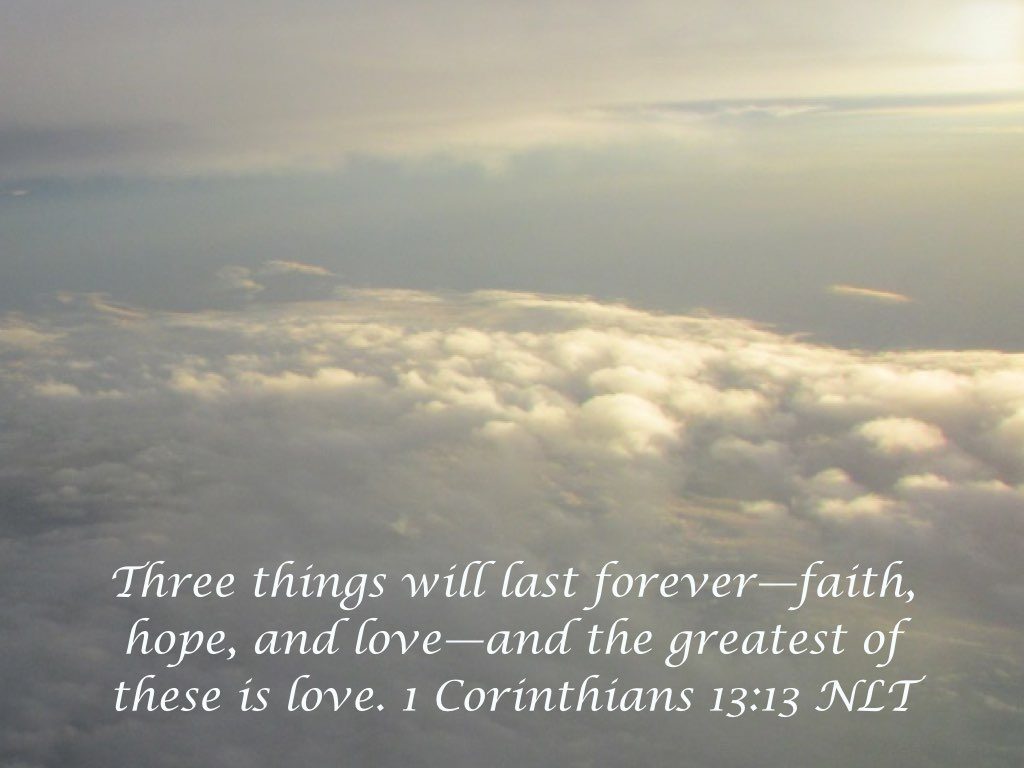
The shootings at the Emanuel African Methodist Episcopal Church in Charleston this last week by a young man who first spent an hour in Bible study and prayer with his victims has shaken all of us. Even more impacting however has been the aftermath. Friends and relatives have not responded with hate but with love and forgiveness.
The granddaughter of Daniel Simmons Sr., who was killed Wednesday, said,
“Although my grandfather and the other victims died at the hands of hate, this is proof—everyone’s plea for your soul is proof that they lived in love and their legacies will live in love. So, hate won’t win. . . .
And its true. The shooter hoped to start a race war, with hatred at its center. The victims’s families created a wave of love instead that I think could ignite a movement.
Why people need to die in order for love to find its greatest expression I don’t understand. I do know however that this is the way of Jesus, he too laid down his life at the hands of those who hated so that his life could give birth to a movement of love.
One blogger commented:
As I watched I felt I was witnessing something miraculous. I think I did. It was people looking into the eyes of evil, into the eyes of the sick and ignorant shooter who’d blasted a hole in their families, and explaining to him with the utmost forbearance that there is a better way. (read the entire article.)
The way of love is a far better way, it is miraculous and it is contagious. May we let it be birthed in us too, not just as we think about this horrible situation but as we remember the many situations throughout our country and indeed throughout our world where hate, not love is currently in the forefront.
What kind of a movement could we start I wonder if all the hate filled, violent encounters in our world were responded to with love and forgiveness, not hate and violence?
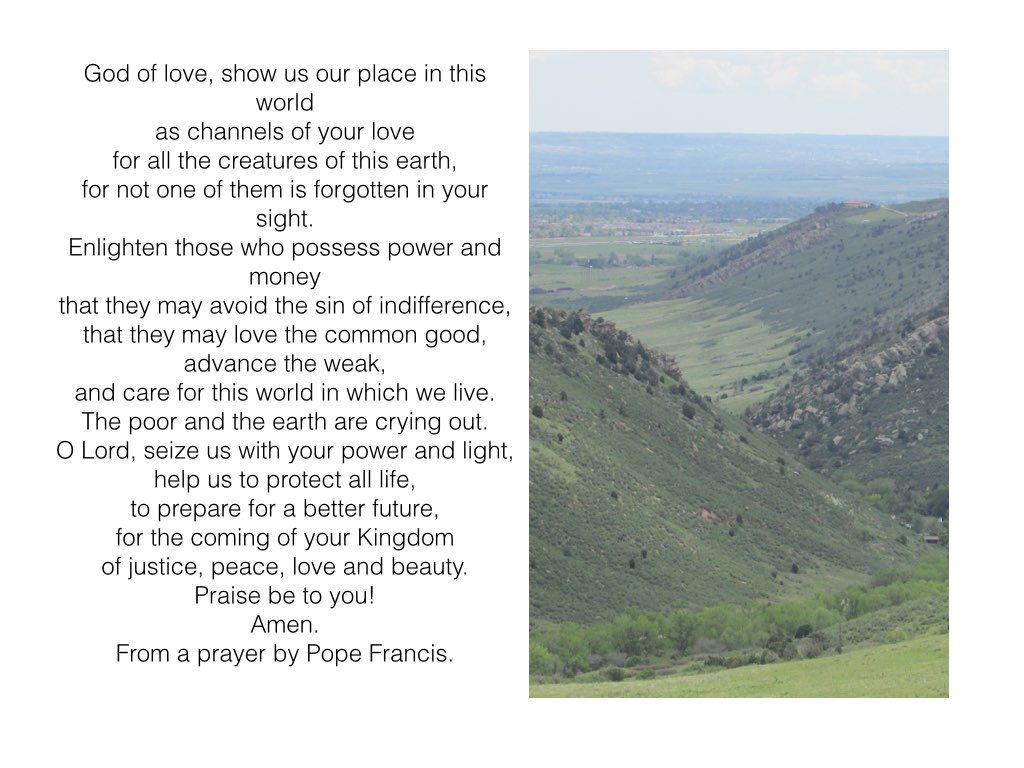 The prayer above is taken from a prayer in Pope Francis encyclical on climate change. This is an issue that deeply disturbs me and I think should disturb all who call themselves followers of Christ. It puzzles me how anyone who loves life and family cannot be concerned.
The prayer above is taken from a prayer in Pope Francis encyclical on climate change. This is an issue that deeply disturbs me and I think should disturb all who call themselves followers of Christ. It puzzles me how anyone who loves life and family cannot be concerned.
The evidence for climate change is not only compelling but becomes more disturbing every year. We trust scientists in other areas of life, why not here? Yesterday I read about the impact of pollution on the Arctic ice and how it is accelerating the rate of ice melt in Greenland. God created us to be stewards of this good earth and all its life. What kind of a world do we want to live in and leave for the next generation?
What is your response:
Sit quietly for a few minutes thinking about your own attitude towards climate change, pollution and the destruction of creation. How would you classify it – concerned, indifferent, or denial? Where do you think these attitudes come from? How in keeping are they with God’s call to be good stewards?
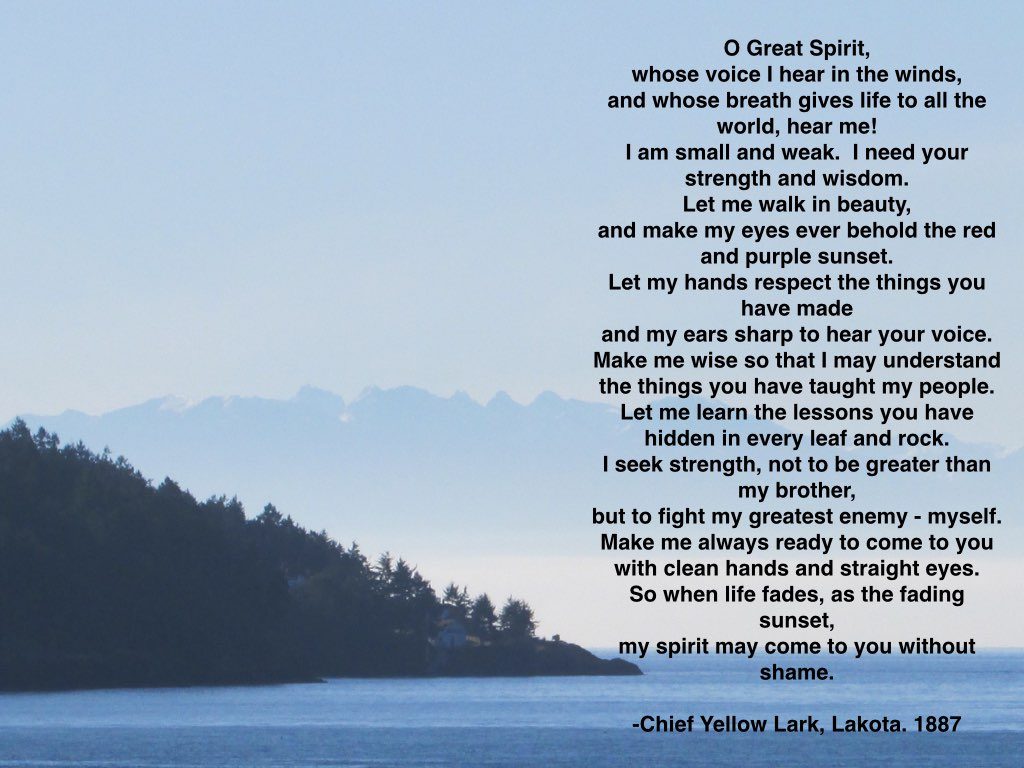
This second prayer, which I have posted before, is an example of how often native peoples’ can teach us about our need to respect the earth.
Understanding demands response. As our understanding both of the extent of climate change and its consequences increases, it demands more action from us. Some of these actions may be as simple as walking rather than driving when we are only going a short distance. They could involve changing where we buy our goods based on a company’s environmental policies. For some they involve more radical action like advocacy like Earth ministry, the planting of trees like Plant with Purpose, or creation care like A Rocha.
What is Your Response:
Read through the materials on the websites highlighted above then sit quietly for a few moments considering what you have read. Now listen to the video below. What response to you feel God is asking of you. Write down the first two or three steps. When do you hope to accomplish these?
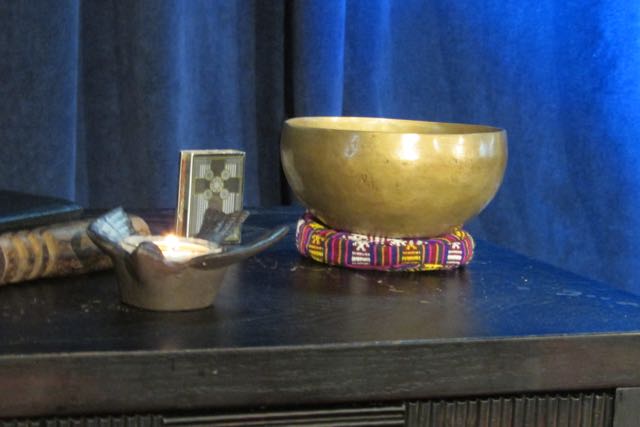
Singing bowl in worship
Last week I bought myself a singing bowl and I have been a little like a kid with a new toy ever since. What on earth is that? I hear some of you saying. Oh, Oh now she has really gone off the rails, I hear others comment, that’s a Buddhist thing.
Singing bowls are becoming increasingly popular as a tool in Christian worship. Some use them as a call to worship, either for personal or group prayer, others as a way to calm and centre their spirits and others as a healing tool. The resonance of the singing bowl’s tone really vibrates into my soul and certainly catches my attention with its soothing sound.
In this article, Singing Bowls: A Wordless Call to Worship, the author gives a good look at the history, uses and how to make a bowl sing. I particularly enjoyed this vivid description of use in a service.
the cantor steps away from the mic and stands quietly for a full minute. Then she moves slowly but confidently to the front of the assembly where all can see her. She is joined by another music minister who stands next to her holding a small golden bowl. They wait again there, slowly making eye contact with as many people in the assembly as they can. Then without a word, they both raise their arms in a giant sweep beginning from the side of their legs and slightly forward to just above their shoulders, all the while maintaining eye contact and a gentle smile. The assembly stands. The cantor lowers her arms while the music minister raises the golden bowl higher for the whole assembly to see. In his other hand he holds a short wooden stick. After another thirty seconds of silence, he brings the stick to rest at the side of the bowl in preparation to strike it. He waits another thirty seconds before he strikes the bowl. A pure clean piercing bell tone sounds throughout the room. After a few heart beats, he strikes it again and finally a third time. He slowly lowers the stick as he lets the bowl resonate and the sound drift away. When the tone is almost inaudible, the cantor begins a cappella, “Jesus, remember me, when you come into your kingdom.” The assembly easily picks up the song on the second phrase since it has been their gathering song for all the Sundays of Lent for the last couple years. The choir adds harmonies while a Celtic drum gives a steady downbeat. Every other refrain the golden bowl is struck again on the first down beat, offering its own unique voice to the choir.
Learning to be creative and unafraid to use new tools and techniques is an important part of worship both in our personal and community faith observances. The singing bowl is certainly something worth experimenting with. And if you are already using a singing bowl I would love to hear about the creative ways you use it and how it has enriched your faith.
Here is a helpful youtube video on how to play a singing bowl. I found it very useful.
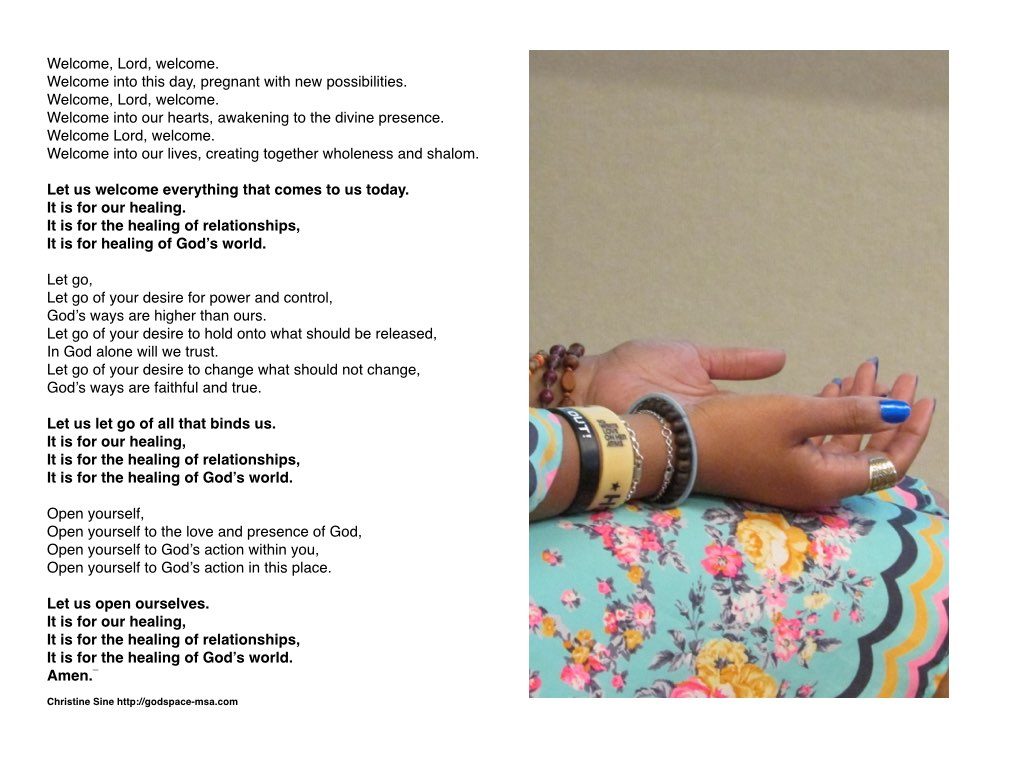 The prayer above was inspired by reading Thomas Keating’s welcome prayer which I incorporated into a post yesterday. I am getting ready for strategic planning meetings with the MSA team next week and plan to use this to open our sessions. Welcoming God into our meetings is a way of reminding ourselves of the God who is always present and waiting to be noticed. We appreciate your prayers as we plan events and strategies for the next few years.
The prayer above was inspired by reading Thomas Keating’s welcome prayer which I incorporated into a post yesterday. I am getting ready for strategic planning meetings with the MSA team next week and plan to use this to open our sessions. Welcoming God into our meetings is a way of reminding ourselves of the God who is always present and waiting to be noticed. We appreciate your prayers as we plan events and strategies for the next few years.
As an Amazon Associate, I receive a small amount for purchases made through appropriate links.
Thank you for supporting Godspace in this way.
When referencing or quoting Godspace Light, please be sure to include the Author (Christine Sine unless otherwise noted), the Title of the article or resource, the Source link where appropriate, and ©Godspacelight.com. Thank you!


